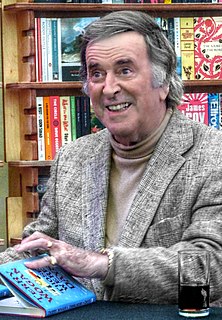A Quote by Lawrence Lessig
So uncritically do we accept the idea of property in ideas that we don't even notice how monstrous it is to deny ideas to a people who are dying without them.
Related Quotes
The acts of the mind, wherein it exerts its power over simple ideas, are chiefly these three: 1. Combining several simple ideas into one compound one, and thus all complex ideas are made. 2. The second is bringing two ideas, whether simple or complex, together, and setting them by one another so as to take a view of them at once, without uniting them into one, by which it gets all its ideas of relations. 3. The third is separating them from all other ideas that accompany them in their real existence: this is called abstraction, and thus all its general ideas are made.
It is no exaggeration to say that every human being is hypnotized to some extent either by ideas he has uncritically accepted from others or ideas he has repeated to himself or convinced himself are true. These negative ideas have exactly the same effect upon our behavior as the negative ideas implanted into the mind of a hypnotized subject by a professional hypnotist.
No doubt that anarchist ideas are frightening to those in power. People in power can tolerate liberal ideas. They can tolerate ideas that call for reforms, but they cannot tolerate the idea that there will be no state, no central authority. So it is very important for them to ridicule the idea of anarchism to create this impression of anarchism as violent and chaotic. It is useful for them.
a novel is not born of a single idea. The stories I've tried to write from one idea, no matter how terrific an idea, have sputtered out and died by chapter three. For me, novels have invariably come from a complex of ideas that in the beginning seemed to bear no relation to each other, but in the unconscious began mysteriously to merge and grow. Ideas for a novel are like the strong guy lines of a spider web. Without them the silken web cannot be spun.
All that was required of them (i.e. the brain-washed masses) was a primitive patriotism which could be appealed to whenever it was necessary to make them accept longer working hours or shorter rations. And even when they became discontented, as they sometimes did, their discontent led nowhere, because, being without general ideas, they could only focus it on petty specific grievances. The larger evils invariably escaped their notice.
Ideas are dangerous, but the man to whom they are least dangerous is the man of ideas. He is acquainted with ideas, and moves among them like a lion-tamer. Ideas are dangerous, but the man to whom they are most dangerous is the man of no ideas. The man of no ideas will find the first idea fly to his head like wine to the head of a teetotaller.



































